Phonics Skills Consonants Worksheets for 4-Year-Olds
5 filtered results
-
From - To
Enhance your 4-year-old's phonics skills with our engaging Consonants Worksheets! Designed specifically for preschool learners, these printable activities focus on building a solid foundation in letter recognition and sound association. Children will enjoy colorful illustrations and fun, interactive tasks that help them identify consonants, understand their sounds, and strengthen their language development. Ideal for both home and classroom use, our worksheets promote a love for learning while improving fine motor skills through tracing and writing exercises. Equip your little ones with essential phonics knowledge and watch them thrive on their educational journey with our exciting, easy-to-use resources!
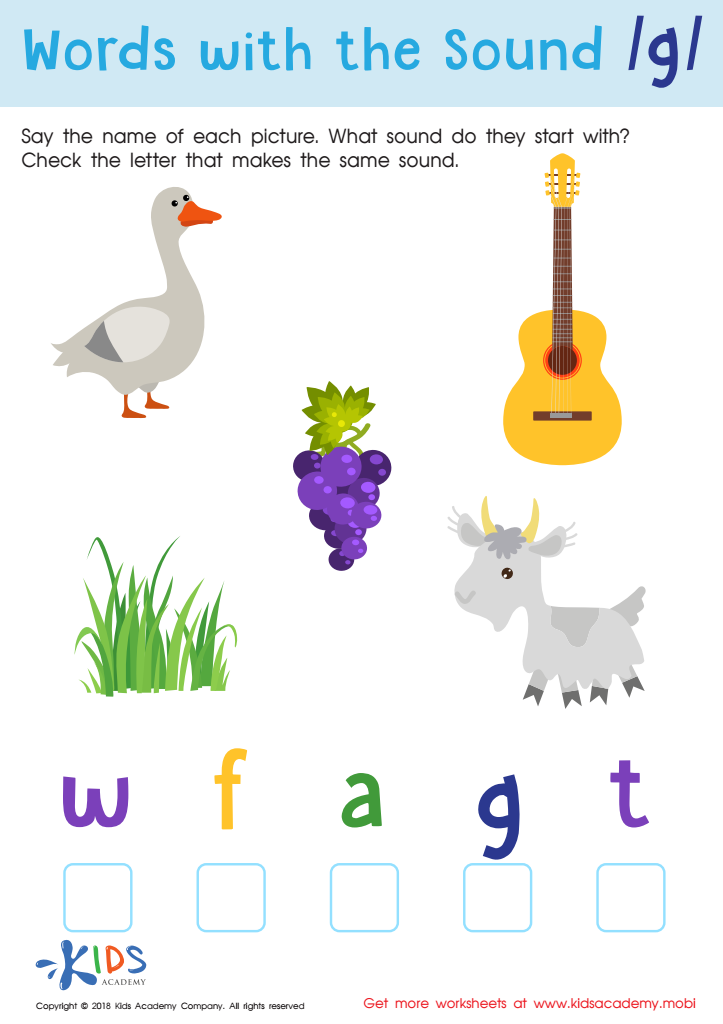

Words with sound g Reading Worksheet
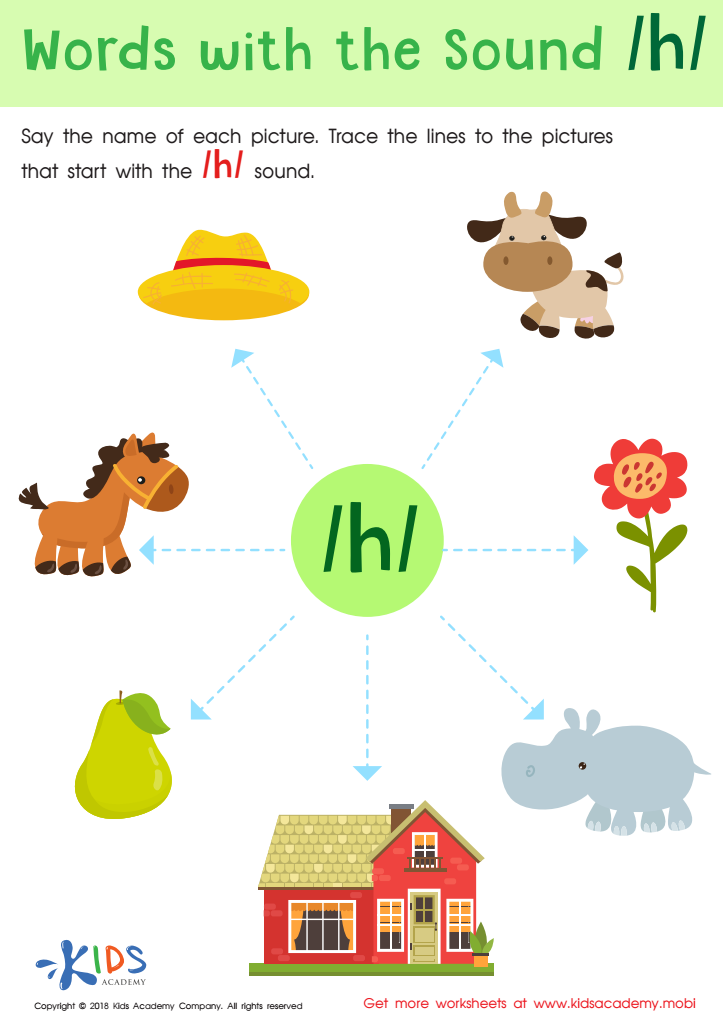

Words with sound h Reading Worksheet
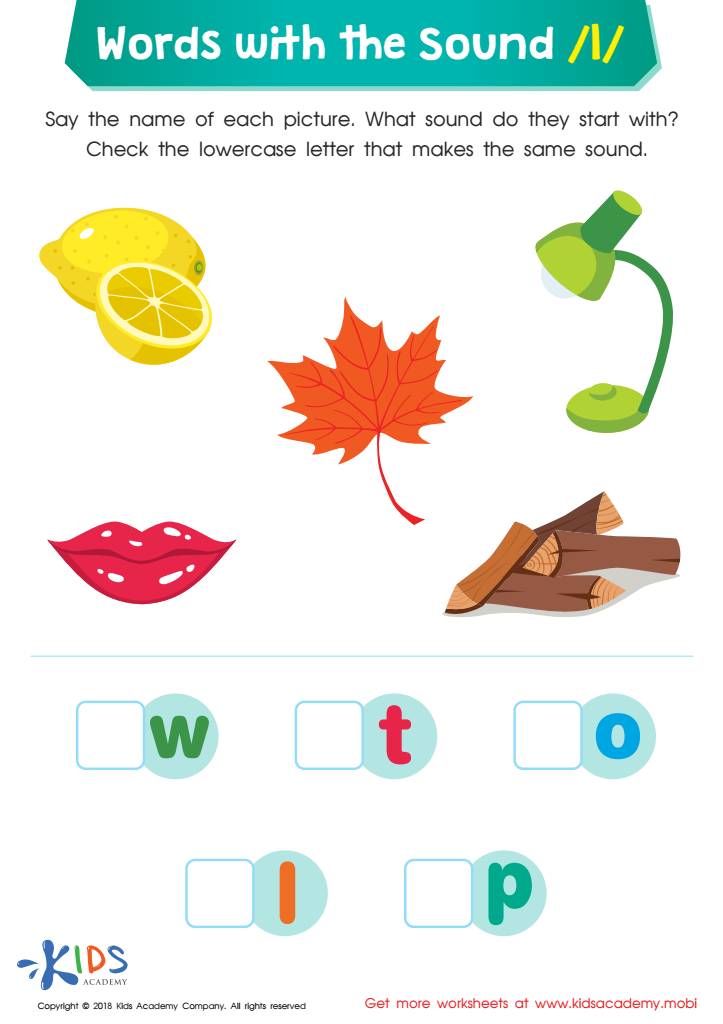

Words with Sound L Reading Worksheet
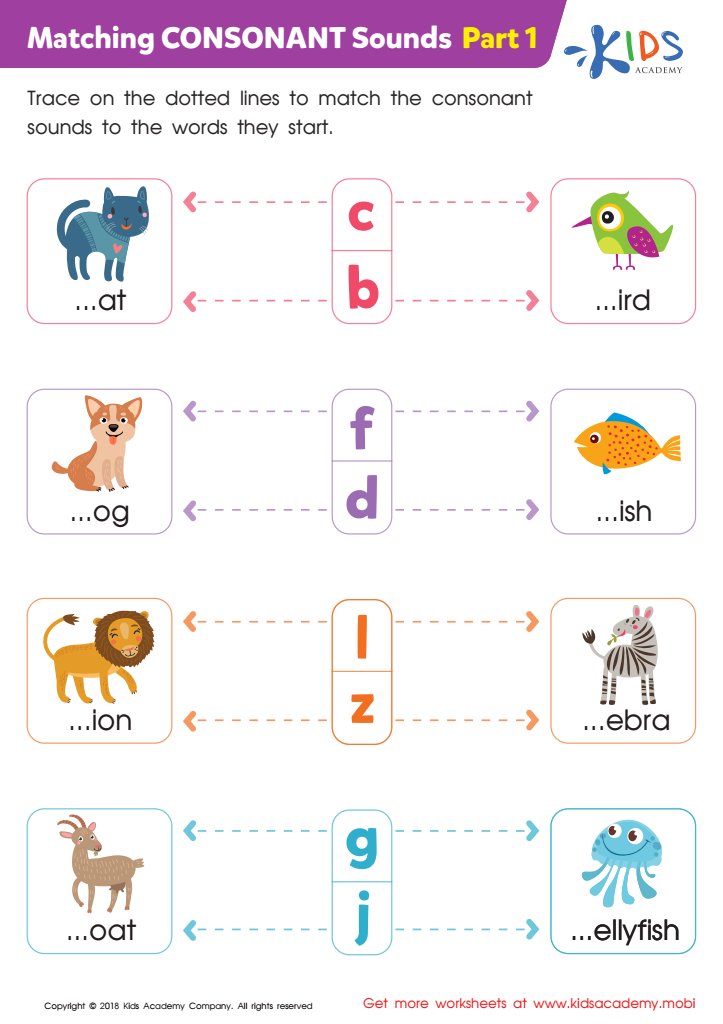

Matching Consonant Sounds: Part 1 Worksheet
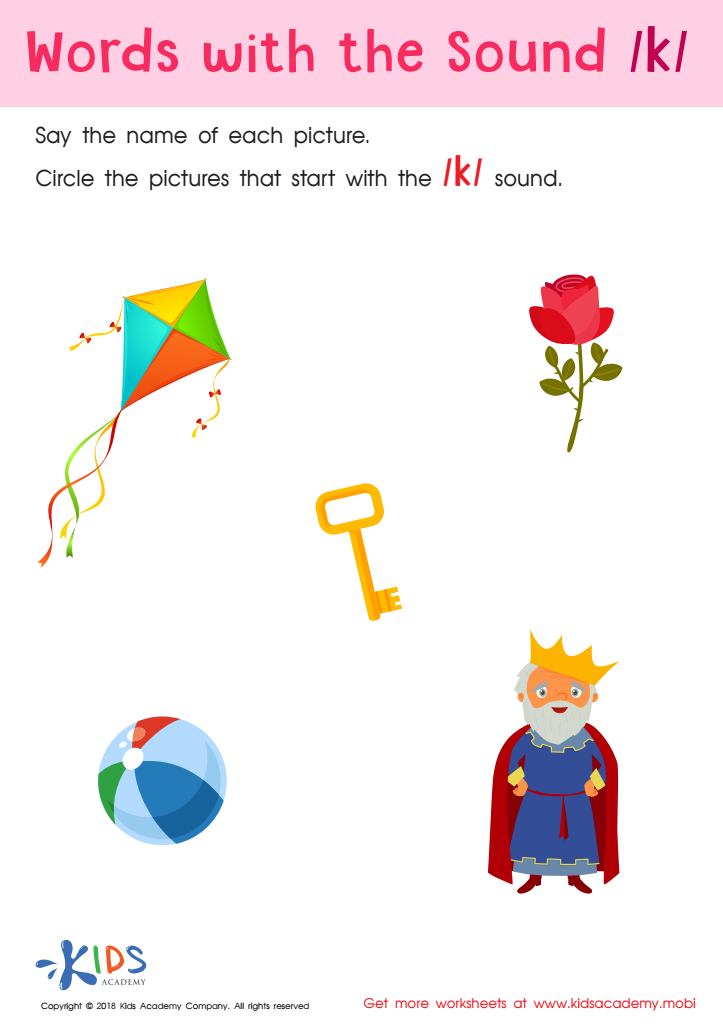

Words with sound k Reading Worksheet
Phonics skills, particularly consonants, are foundational for early literacy development in 4-year-olds. During this critical stage, children are beginning to explore language, sounds, and letters, making it an ideal time for parents and teachers to foster phonemic awareness. Understanding consonants helps young learners recognize the sounds that compose words, which is essential for reading and writing.
Consonants make up a significant portion of the English language and contribute to word formation and pronunciation. By focusing on phonics skills related to consonants, caregivers can enhance children's listening and speaking abilities and support sound differentiation. This is vital for building vocabulary and language skills.
Additionally, early mastery of consonant sounds promotes confidence and encourages a love for reading. Children who grasp phonics are better prepared for future academic challenges, particularly in literacy, which is crucial for overall learning success.
Moreover, strong phonics skills can prevent future reading difficulties, paving the way for a more positive educational experience. By engaging children through interactive activities and phonics games, parents and teachers can cultivate a strong literacy foundation that encourages lifelong learning. Thus, prioritizing phonics skills for consonants is an essential investment in a child's educational journey.

 Assign to My Students
Assign to My Students














